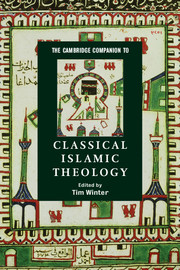8 - Ethics
from Part II: - Themes
Published online by Cambridge University Press: 28 June 2008
Summary
The end of action is to serve God.
(Ibn Hanbal)Following the Aristotelian example in the field of metaphysics, it is often preferable not to accept received wisdom as to what a discipline is, but, after inquiring into the possibility of its existence, to go instead in search of it. This is certainly advisable in a field like Islamic ethics, where the very concept of such a science has not originated in the place in which one looks for its manifestation. In this case, instead of insisting on an already established understanding of ethics gained from ancient Greek philosophy and from its interpretations in the course of Western philosophy and then transplanting these into Islamic theologies of ethics, one should rather go so far as to risk their failure. Such failure can, of course, attain the concept of the ethical itself. But the price paid can be a gain when it opens the ear to an unheard-of version of ethics. If one prefers, however, to begin from a common root, then there will be two minimal assumptions to be made: that ethics is a science, a knowledge, in the Greek sense of the word, and that the object of this science is human action.
That much said, when one starts to inquire into Islamic ethics, one will soon notice where ways begin to part. Any knowledge, any “science” in Islam, as well as the initiative and the ways to practise it, must be derived from the Holy Qur'an, the Word of God, and from hadith, the reports of the sayings of the Prophet of Islam.
- Type
- Chapter
- Information
- The Cambridge Companion to Classical Islamic Theology , pp. 161 - 179Publisher: Cambridge University PressPrint publication year: 2008
- 3
- Cited by



